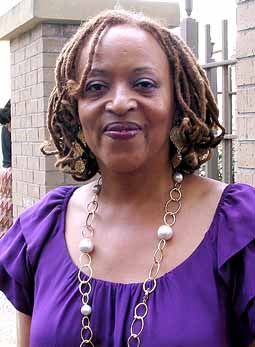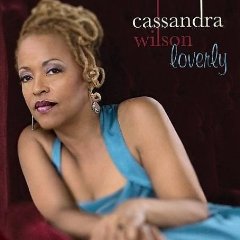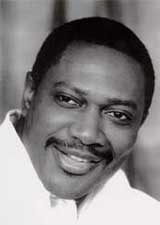Major Works
Songs

Cassandra Wilson at the Mississippi Governor’s Awards in 2009 at which she received the Artistic Excellence in Music Award. . Photo by Nancy Jacobs
Just a few of her many songs are listed below
- Strange Fruit
- Love Is Blindness
- Solomon Sang
- Death Letter
- Skylark
- Find Him
- I’m So Lonesome I Could Cry
- Last Train To Clarksville
- Until
- Memphis
- Harvest Moon
Albums
- Day Aweigh – 1987
- Point of View – 2001
- Blue Skies – 1988
- Jumpworld— 1990
- She Who Weeps – 1991
- Cassandra Wilson Live – 1992
- Dance To Drums Again – 1993
- After the Beginning Again –1994
- Blue Night Til’ Dawn – 1993
- After the Beginning Again –1994
- New Moon Daughter – 1996
- Best of Genre, Songbook – 1996
- Traveling Miles- 1999
- Let’s Get Lost–2001
- Point of View–2001
- Days Aweigh— 2002
- Belly of the Sun— 2002
- Blue Skies–2002
- Cassandra Wilson Sings Standards–2003
- Glamoured –2003
- Loverly 2008 (Winner of Grammy Award, 20090
- Closer to You: The Pop Side–2009
- Coming Forth by Day (2015)
Cassandra Wilson: A Biography
 by Nicole Nelson (SHS)
by Nicole Nelson (SHS)
Cassandra Wilson is often described as not only an accomplished jazz vocalist and composer but also as a lyricist, producer, musical director, guitarist and pianist (Myers 1E). Born in Jackson, Mississippi, in 1955, Cassandra Wilson has been singing and performing since she sang at her brother’s kindergarten graduation at the age of five. The youngest of three children, Wilson began playing the piano and guitar at the age of nine. Cassandra attributes her interest in music to her parents. Her mother, who is a retired elementary school teacher, and father, who is a bass guitarist, often sang to her as a small child. Her father introduced her to jazz (Yanow). Jazz was not a very popular form of music during the 1960’s, but Cassandra loved it so much that she wanted to share it with others (Nelson). Wilson took lessons in classical piano for six years, before learning to play acoustic guitar. She enjoyed experimenting with the guitar, and the instrument soon became her favorite. Between the ages of eleven and fifteen, she wrote about twenty original songs
A former classmate, Dr. Phillip Nelson, recalls a time when she shared her new found love for jazz with the entire student body at a Jackson’s Powell Junior High School talent show. “You have to remember that at that time the only thing we listened to was R&B, and she got on stage with a guitar and played a type of music no one had really heard before. It was much like a ballad, and although she didn’t get a lot of attention (there was a lot of talking going on), she didn’t get booed off stage either. I was impressed by the courage she demonstrated to sing an alternative selection. She sang well. She had great stage presence, and although she didn’t play anything popular, she was good enough to have people stand there and listen to her, and that’s when I realized that she had broader experiences, at least musically, than most people at that age. She sang that song because she loved it, and she didn’t care if you liked that song or not, and I respected her for that” (Nelson).
When Cassandra was in the ninth grade, the schools were desegregated in Mississippi. Her ninth and tenth grade years were difficult as Cassandra recalls but were better for the remainder of her high school years. Despite the racial tensions that were present at her new school setting, she eventually adjusted to her environment. In the eleventh grade she got the leading role as Dorothy in The Wizard of Oz. “ For all the negative aspects, experiencing things that were different from what I knew was also exciting,” says Cassandra in an interview for The Oxford American in its 1997 music issue (Woodworth 31). Obtaining the star role in the high school musical was not the first time Cassandra stepped over the color lines and made a mark for herself and others. During her last years in high school, Wilson formed a musical group with two young men who were both white. “She had difficulty (with classmates) because of the relationship she chose to have, but you had to respect the choice she made”(Horhn). Wilson saw her interracial music group as a growing period for her life as well as for others. “Music was the way we (blacks and whites) came together. We traded albums at school. I remember hearing James Taylor and then really getting into Joni Mitchell. I turned some of my friends on to jazz they hadn’t heard before” (Woodworth 31).
After obtaining a degree from Jackson State University in mass communication, Wilson moved from Mississippi to New Orleans and worked as an assistant in Public Affairs at a local television station. In 1982, Wilson moved to New York. She began recording widely in the 1980’s initially with Steve Coleman and Henry Threadgill’s New Air group. She became the main vocalist with their M/Base collection. During her first decade in New York, she released seven records on the JMT/Verve label while she also sang on other innovative projects for other singers (Woodworth 31). By 1993 she had sung on ten albums produced by JMT records with a wide variety of New York musicians, including Mulgrew Miller and Greg Osby (Carr 701).
Cassandra’s music has often been compared to artists like Betty Carter, Nina Simone, and Shirley Horn, whom she also considers to be some of her musical influences. Billy Holiday and Sarah Vaugh also influenced her (Murray C1). Cassandra has come a long way from her high school music group and late night singing at local clubs. Cassandra now concentrates more on the pure innovative production of her own music albums. If Cassandra Wilson’s intentions are to open people’s eyes to the broadness of her music through the messages in her songs, then she is well on her way to achieving her goal. Wilson’s emotional range and tone variations impress many critics, audiences, and fellow musicians. Many critics write that she is one of the most promising musicians on the horizon (Myers E-1). She has received many awards due to her sensual and soulful voice. In her own hometown of Jackson, Mississippi, she was selected to receive the 1997 Governor’s Award for excellence in the Arts. Unfortunately, she was unable to accept this award due to her tour with Wynton Marsalis. Her tour, entitled Blood on the Fields, was Grammy nominated for best vocal performance (Lucas). Wilson won the “best jazz vocalist” Grammy award for her album New Moon Daughter (Clevenger). Her album New Moon Daughter has been described as one of her best albums, with vocals that carry sultry and contralto undertones (Murray C1). Cassandra’s album Blue Light Til’ Dawn was so well done that it won her the Downbeat’s “Singer of the Year” title for 1994 and 1995. In 1996, this album also won her the same honor in Down Beat’s Critic poll (Clevenger).She also has appeared on screen in the Arnold Schwarzenegger movie Junio.
Cassandra Wilson is not overly concerned with what other people think of her or how she performs. She was named “most important and daring jazz vocalist” by Time magazine in 1996. According to one writer for the internet website “Lush Lives,” Cassandra Wilson is one of the top jazz singers of the 1990’s. The writer continues, “Blessed with a distinctive and flexible voice, she is not afraid to take chances (Yanow). Listeners can only wonder if Cassandra’s unique sense of singing is what attributes to her rising success. “I’m interested in crossing boundaries,” explains Wilson, “to be able to operate in several worlds at once is the result of being open minded, whether in music or some other part of the experience. I still believe that things have to fall apart before something new can emerge. That’s true for everything, including music”(Woodworth 31).
Wilson expresses herself through her music. She has become well loved and admired because of her ability not only to sell her music, but herself in the process. Senator John Horhn states that the reason Cassandra has become so successful is because she makes the music her own. “That in turn is why people love her so much, because you feel what she is trying to tell you” (Horhn Interview). Wilson sings with the intent of getting a message to her listeners. She sings with her heart and so much of her soul that it seems as though she is literally singing to you (Nelson interview). “ However much this life consumes me, however unbalanced things get, I always want to remember that when I look into someone else’s eyes I am seeing myself” (Woodworth 34). There is absolutely no doubt to that at the rate Cassandra is going, her contralto, sensual voice and down-to-earth personality will draw a lot of fans for a long time to come.
She won a Grammy award for her vocal stylings on New Moon Daughter in 1997 and for her album Loverly in 2009 as well as the 2009 Mississippi Governor’s Award for Artistic Excellence in Music.
Cassandra Wilson: A Biography II
by Kim Sudduth (SHS)

Kim Sudduth (SHS Researcher)
Cassandra Wilson was born in Jackson, Mississippi, in 1957. She had an interesting childhood. She studied piano from the age of nine, began writing her own songs at the age of twelve, and began performing at the age of nineteen. She attended Jackson State University and earned a degree in communications. She was an assistant in public affairs in New Orleans. She met saxophonist Earl Turbinton, who became a mentor for her.
Jazz is her favorite type of music, but her first performances around Mississippi and Arkansas were folk music. Many singers like Ella Fitzgerald, Sarah Vaughan, and Betty Carter have influenced her music. Wilson’s father, Herman Fowlkes, was a jazz musician who played guitar and bass. Her mom was an elementary school teacher. She is the youngest of three children. Although she is from Jackson, Mississippi, she now lives in New York City.
Wilson was married to Anthony Wilson from 1981 to 1983. She has a son, Jeris, born in the late 1980s. She and her son lived in Harlem, New York, for awhile. In 2000, Wilson married actor Isaach de Bankolé, who directed her in the concert film Traveling Miles: Cassandra Wilson (2000).
Wilson has won several awards for her music on her album named New Moon Daughter. She was named female singer of the year in 1994 and 1995 in (DownBeat Reader’s Poll), and her album was No.1 for Best Music of 1996 (Time Magazine,1993). Ebony selected her one of America’s fifteen most beautiful black women. She has been on the cover of Essence magazine.DownBeat Magazines selected her Female vocalist of the year for 1996.Esquire named her one of the year’s “Women we love” under the headlines “Diva of Desire.” A New York Times critic has called the album “One of the best albums of decade.” Time Magazine says that she is the most accomplished jazz vocalist of her time. Her album New Moon Daughter on Blue Note Records is about different kinds of relationships and the cycles they go through. She was the first singer of her generation to win Jazz Vocalist of the year in 1993. The song “Blue Light til Dawn” examines her roots in jazz music. Her album New Moon Daughter won a Grammy award in 1997. However, Wilson’s musical interests range from jazz to popular music, rhythm and blues to folk, blues to rock.
Telephone Interview with Senator John Horhn (Childhdood friend of Cassandra Wilson)
by Nicole Nelson

Senator John Horhn, photo courtesty of Horhn
What was she like as a child?
“She was a tomboy. We used to climb trees together, and she always used to beat me to the top.”
Have you ever heard her sing in person?
“Yes. She has a wonderful, rich, full, melancholy voice. She sings from her heart, and she winds up selling you her thoughts and feelings at the same time you’re enjoying the melody of her song. She sings with passion. She always wants people to remember who and where they are. She makes a statement with her music.”
Was she popular in high school?
“Yes. She was popular. People warm up to her; there is no way you can talk to her and not like her. In high school she had difficulty because of the person she chose to date, but you had to respect the choice she made. She made Who’s Who and Hall of Fame. She loves the idea of being able to come home and no one knows who she is. She’s loyal to her friends. She’s mischievous; she’s witty; and she loves to laugh at a good joke. She uses her music to convey her feelings.”
When was the last time you spoke with her?
“Last time, was this past fall (1997), when she came down to do a charity concert in Jackson.”
Does she do a lot of performances?
She’s really popular in New York, and the countries overseas just love her. She goes out of the country quite a bit.
I know that in order to do things you must have normally have your family behind you. Does her family support her musical career?
Her father was a bass musician himself. She was very close to her father, the spitting image of him, but she had an estranged relationship with her mother. At first her mother didn’t support her music career, but now they have grown a lot closer. The song “Mama’s Little Baby,” she just recently recorded is a lullaby her mom sang to her as a baby. I’d have to say that this song was a major point of healing for them both, even though they had patched things up way before this. It’s a beautiful tribute, (and) beautiful song.”
What is she doing now?
“A lot of touring. She writes about one half of the material she’s recording now. On December 26, 1997, she was here in on Jackson to do a concert for Alpha Kappa Alpha. She donated her services to the group (her mom is an AKA). She opened with the song “Strange Fruit” by Billie Holiday. She did one movie soundtrack, and a commercial for the new Jaguar car. She sang over another song; it went very well together. It was mystical. If there were one word to describe Cassandra’s voice, it would be “mystical.”
How would you describe Cassandra Wilson?
“Extremely, extremely, extremely intelligent, and extremely, extremely, extremely beautiful. Most beautiful woman in there with the Halle Berrys and Vanessa Williamses of the world. She’s comfortable with herself, which in turn makes you comfortable with her. Anyone who meets her loves her; she has a wonderful personality!
Timeline
- 1955- Cassandra Wilson is born in Jackson, Mississippi
- 1964- takes lessons playing the piano at age nine
- 1976- begins studies at Jackson State University
- 1978- 1981- performs as a solo folk guitarist, as lead vocalist for a group calledThese Days
- 1980- graduates from Jackson State University with a mass communications degree
- 1981- moves to New Orleans and works as an assistant public affairs director at a television station
- 1982- moves to New York
- 1986- first album put out, Point of View, blends jazz, R & B, rock, reggae, and Latin rhythms
- 1987- her second album, Day Aweigh, is released
- 1988- she records her third album entitled Blue Skies
- 1990- she records her fourth album, JumpWorld
- 1991- She Who Weeps is released. Her mother writes the title track, and her father plays the bass
- 1992- Cassandra Wilson Live album recreates her live performance in concert at Munich Corart
- 1993- After the Beginning Again is recorded (available only in Europe and Japan)
- 1993- she signs with Blue Note recording industry and produces album, Blue Night Til’ Dawn
- 1994 -named “female singer of the year” by Downbeat Reader’s Poll
- 1995- again named “female singer of the year” by Downbeat Reader’s Poll
- 1996- named “most important and daring jazz vocalist” by Time magazine
- 1997 Grammy award for New Moon Daughter
- 2001-Plans to release Belly of the Sun with Mississippians Boogaloo Ames and Eden Brent
- 2009–Winner of Grammy for Best Jazz Vocal Performance for her album Loverly and Mississippi Governor’s Award for Artistic Excellence in Music.
- 2015 – signed with Legacy. Released Coming Forth by Day
Related Websites
Bibliography
- Blumenfield, Larry B. “Cassandra Wilson”.n. pg. Online. Internet. June 1996. Available http://www.musicblvd.com
- Carr, Ian, Digby, Fairweather, and Brian Priestley. Jazz: The Rough Guide.London: Penguin Books, 1995.
- Clevenger, Andrew. “Jazz Profiles: New Moon Divas”.n. pag. Online. Internet. 20 April 1998. Available http://www.stagebill.com/Jazz/profiles/index1.html.
- Horhn, John Senator. Telephone Interview. April 20, 1998.
- Lucas, Sherry. “Schedule Keeps Singer from Mississippi Award.” The Clarion Ledger. Feb. 24, 1997.
- Murray, Sonia. “Cassandra Wilson: Daring Daughter of Jazz.” The Atlantic Journal. April 29, 1996.
- Myers, Leslie. “She’s So Hot.” The Clarion Ledger. April 24, 1994.
- Nelson, Phillip Dr. Personal Interview. April 12, 1998.
- Pettus, Gary. “Homesick Blues Can’t Claim Her.” The Clarion Ledger. June 19, 1987.
- Woodworth, Marc. “Cassandra Wilson: As told to Marc Woodworth.” The Oxford American. Vol.16. 1997.
- Yanow, Scott. “Lush Lives: Lady of Jazz from 1930 to 1990”.n.pag. Online. World Wide Web. 20 April 1996. Available http://www.ddg.com/LIS/InfoDesignF96/Ismael/jazz/jzindex.html.
